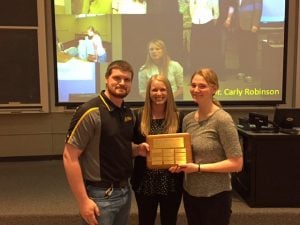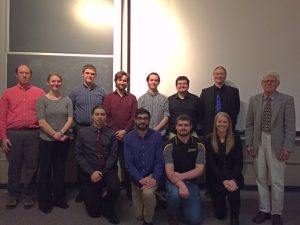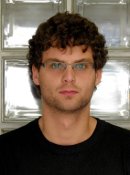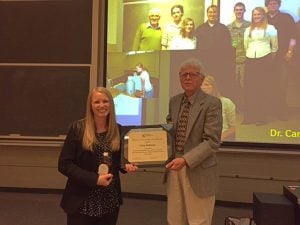 Dr. Jacek Borysow presented Dr. Carly Robinson with the first Henes Center for Quantum Phenomena Distinguished Alumna Award. Dr. Robinson graduated with a BS in Physics from Michigan Tech in 2007, received her PhD from the University of Colorado, and is currently a Senior Product Strategist/Science Advisor with the U.S. Department of Energy.
Dr. Jacek Borysow presented Dr. Carly Robinson with the first Henes Center for Quantum Phenomena Distinguished Alumna Award. Dr. Robinson graduated with a BS in Physics from Michigan Tech in 2007, received her PhD from the University of Colorado, and is currently a Senior Product Strategist/Science Advisor with the U.S. Department of Energy.
Dr. Carly Robinson, a 2007 alumna of the physics department, awarded the 2017 Ian W. Shepherd award jointly to Ben Manning (left) and Kelci Mohrman (right). Congratulations, Kelci and Ben!
At the colloquium, seniors presented their research. From left to right, (standing) Dr. Will Cantrell, Kelci Mohrman, Floyd Johnson, Colin Sheidler, Nick Videtich, David Russell, Michael Foetisch, Dr. Jacek Borysow. (kneeling) Austin Hermann, Parker Schimler, Ben Manning, Dr. Carly Robinson.
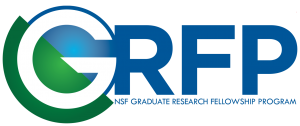 Kelci Mohrman received honorable mention from the National Science Foundation’s Graduate Research Fellowship Program (NSF-GRFP), one of the oldest and most competitive programs in the nation.
Kelci Mohrman received honorable mention from the National Science Foundation’s Graduate Research Fellowship Program (NSF-GRFP), one of the oldest and most competitive programs in the nation.
Pushpalatha Murthy, dean of Michigan Tech’s Graduate School says, “Being a recipient of the Graduate Research Fellowship or Honorable Mention status in this very prestigious competition speaks to the high caliber of our students and the dedication they have for both intellectual pursuits and serving society. The NSF-GRFP is unique in that it emphasizes commitment to both intellectual inquiry and service to society and are looking to support individuals who have the potential to be high achieving scientists and engineers as well as have a broader impact on society. These awards are a well-deserved recognition of the superior accomplishments of our students and the quality and dedication of Michigan Tech faculty, staff and programs. Crafting a winning proposal is a lot of effort and I want to congratulate the students for their accomplishments and thank the dedication and passion of the faculty and staff who helped them. I look forward to great contributions for our students.”
THE NSF Graduate Research Fellowship Program recognizes and supports outstanding graduate students in NSF-supported science, technology, engineering and mathematics disciplines who are pursing research-based master’s and doctoral degrees at accredited US institutions.
Mohrman recently participated in the Undergraduate Research Symposium.
Left: Kevin Waters, Right: Shiva Bhandari
Congratulations to Kevin and Shiva for their outstanding achievements these past few months! Kevin has been awarded the Teaching Award for exhibiting his exceptional abilities as an instructor. Shiva has been awarded the Scholarship Award for demonstrating strong leadership and professionalism within the Physics Department. Be sure to congratulate Kevin and Shiva the next time you see them!
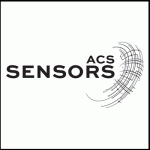 Haiying Liu (Chem), Ashutosh Tiwari (Chem), Ranjit Pati (Physics), along with graduate students Rashmi Adhikari, Mingxi Fang, Nethaniah Dorh, Cong Li, Jingtuo Zhang and Meghath Jaishi, published a paper titled “Near-Infrared Fluorescent Probes with Large Stokes Shifts for Sensing Zn(II) Ions in Living Cells” in ACS Sensors.
Haiying Liu (Chem), Ashutosh Tiwari (Chem), Ranjit Pati (Physics), along with graduate students Rashmi Adhikari, Mingxi Fang, Nethaniah Dorh, Cong Li, Jingtuo Zhang and Meghath Jaishi, published a paper titled “Near-Infrared Fluorescent Probes with Large Stokes Shifts for Sensing Zn(II) Ions in Living Cells” in ACS Sensors.
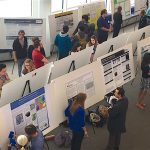 Kelci Mohrman research, The Geminga Pulsar Wind Nebula and the Positron Excess, was presented at Michigan Tech’s 2017 Undergraduate Research Symposium this past week. Mohrman looked to identify and model the gamma-ray emission of the Geminga PWN in GeV energies using data from the Fermi Space Telescope in order to determine the potential contribution to the local electron and positron flux.
Kelci Mohrman research, The Geminga Pulsar Wind Nebula and the Positron Excess, was presented at Michigan Tech’s 2017 Undergraduate Research Symposium this past week. Mohrman looked to identify and model the gamma-ray emission of the Geminga PWN in GeV energies using data from the Fermi Space Telescope in order to determine the potential contribution to the local electron and positron flux.
Geminga (PSR J0633+1746) is a rotating neutron star, called a pulsar, located in the direction of the constellation Gemini. Surrounding the pulsar itself is a pulsar wind nebula (PWN), which accelerates particles to high energies and emits constant gamma radiation. It has been suggested that the particles accelerated by the Geminga PWN could explain the observed excess in the locally measured positron flux, though it was also proposed that this anomalous overabundance of positrons could be a consequence of the annihilation or decay of dark matter.
The Undergraduate Research Symposium highlights the amazing cutting-edge research being conducted on Michigan Tech’s campus by some of our best and brightest undergraduate students.
The students showcasing their work today have spent a significant portion of the past year working alongside Michigan Tech faculty and graduate students to explore, discover and create new knowledge. They’ve spent long hours in the lab or out in the field designing experiments, gathering data, creating new models and testing hypotheses. They’ve applied their classroom knowledge in new and sometimes unexpected ways, and developed new skills that will propel them forward in their careers.
Advisor: Dr. Petra Huentemeyer
Funding: SURF
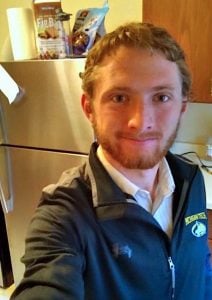 Kaelan Anderson’s research, Studying the Properties of Free Tropospheric Aerosols in the Mid Atlantic, was presented at Michigan Tech’s 2017 Undergraduate Research Symposium this past week. With the assistance of Claudio Mazzoleni, Anderson looked at if the long term research of atmospheric aerosols is necessary to accurately understand and predict a variety of atmospheric phenomena. A relevant example is black carbon, and its forcing effects on the climate.
Kaelan Anderson’s research, Studying the Properties of Free Tropospheric Aerosols in the Mid Atlantic, was presented at Michigan Tech’s 2017 Undergraduate Research Symposium this past week. With the assistance of Claudio Mazzoleni, Anderson looked at if the long term research of atmospheric aerosols is necessary to accurately understand and predict a variety of atmospheric phenomena. A relevant example is black carbon, and its forcing effects on the climate.
The Undergraduate Research Symposium highlights the amazing cutting-edge research being conducted on Michigan Tech’s campus by some of our best and brightest undergraduate students.
The students showcasing their work today have spent a significant portion of the past year working alongside Michigan Tech faculty and graduate students to explore, discover and create new knowledge. They’ve spent long hours in the lab or out in the field designing experiments, gathering data, creating new models and testing hypotheses. They’ve applied their classroom knowledge in new and sometimes unexpected ways, and developed new skills that will propel them forward in their careers.
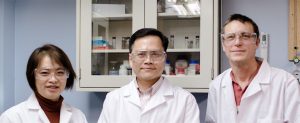 Yoke Khin Yap’s research in high-brightness fluorophores earned him a place in Michigan Tech’s Research Magazine in the article “Commercialization“.
Yoke Khin Yap’s research in high-brightness fluorophores earned him a place in Michigan Tech’s Research Magazine in the article “Commercialization“.
“We are expecting a huge impact to the field of flow cytometery…This will mean a lot for cancer and stem cell research.”
High-brightness fluorophores are dyes that fluoresce in different colors and degrees of brightness. They are used in machines called flow cytometers to detect diseased cells in blood.
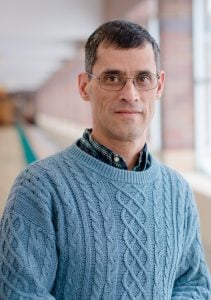 Michigan Tech Magazine “Research” has released its 2017 issue detailing the recent discovery of Merelaniite by Dr. John Jaszczak and his team; with the article Meet the Minerals.
Michigan Tech Magazine “Research” has released its 2017 issue detailing the recent discovery of Merelaniite by Dr. John Jaszczak and his team; with the article Meet the Minerals.
Merelaniite has a unique geometry made up of tiny whiskers of graphite-like spires extracted from the crooks of an albandanite crystal.
A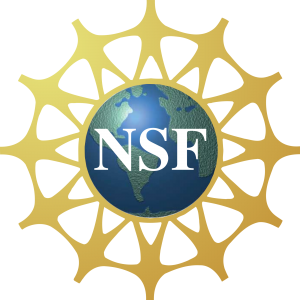 new research grant marks more than 30 years of continuous support of NSF to Professor Alex Kostinski.
new research grant marks more than 30 years of continuous support of NSF to Professor Alex Kostinski.
In the scientific community, Kostinski is well-known as a “Scientist for All Seasons” due to his somewhat nomadic interests in diverse areas of physics including fluid mechanics, atmospheric science, radar meteorology, astronomy, optics and semiconductor physics. Specifically, the results of his research have broad impacts on cloud physics resulting in highly-cited publications in Nature, Phys Rev Letts, Geophys Res Letts. etc.
Kostinski was the recipient of the 2004 Michigan Tech Research Award and has helped the department establish a well-funded research group in atmospheric physics which includes Raymond Shaw, Will Cantrell, and Claudio Mazzoleni.
